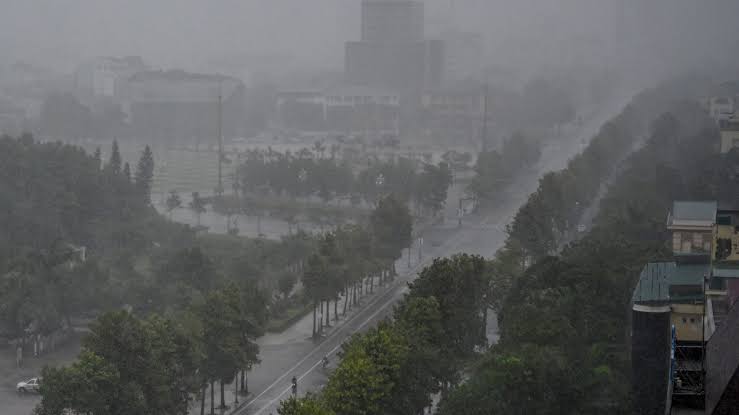Vietnam Braces for Typhoon Kajiki: 600,000 Evacuated as Storm Approaches with 103mph Winds
Vietnam is bracing for what could be its most powerful storm of the year as Typhoon Kajiki approaches the central coast with sustained winds of up to 103 miles per hour.
The storm is expected to make landfall on Monday in the provinces of Thanh Hoa and Ha Tinh, prompting mass evacuations and widespread closures. Officials have already evacuated more than 600,000 people and shut down two major airports as part of emergency preparations.
According to state media, evacuations are underway across Thanh Hoa, Quang Tri, and Danang provinces, affecting over 152,000 homes. The government has deployed 16,500 soldiers and more than 107,000 paramilitary personnel to support evacuation and rescue operations.
“This is an extremely dangerous, fast-moving storm,” a government spokesperson warned late Sunday.
Two airports — one in Thanh Hoa and another in Quang Binh — were closed by the Civil Aviation Authority, and all vessels were ordered to remain in port. Both Vietnam Airlines and Vietjet confirmed dozens of cancelled flights in the affected regions.
Before approaching Vietnam, Typhoon Kajiki battered southern China with heavy rain and high winds. Authorities in Hainan Island and Guangdong province reported mass evacuations, with over 20,000 residents moved to safety. One man in Vietnam’s Nghe An province died on Friday after being electrocuted while securing his roof ahead of the storm.
Kajiki is forecast to be more intense than Typhoon Yagi, which killed 300 people and caused £2.4 billion in damage in 2024. After sweeping through Vietnam, the storm is expected to move inland across Laos and northern Thailand.
Vietnam’s long coastline along the South China Sea makes it particularly vulnerable to tropical cyclones, which often lead to deadly flooding and landslides.
Climate Change Making Storms Deadlier
A study published last year warned that climate change is causing cyclones in Southeast Asia to form closer to land, intensify more quickly, and last longer.
“It’s frightening to see our projections from just last year already materialising,” said Professor Benjamin P. Horton, of City University Hong Kong.
“We are no longer predicting the future — we are living it.”



[…] acknowledges the significant step taken by the Lebanese Government under the leadership of President Joseph Aoun and Prime Minister Nawaf Salam,” […]